Photographs: Ajay Verma/Reuters
Many nations got their freedom after India. And like India, many of these countries had to find their feet and make a fresh economic start.
If you compare India to younger nations based on per capita income, you will realise that other countries have prospered far better.
Per capita income, also called as income per person, shows prosperity of a country.
Courtesy: Forbes
Do you think India can over take any of the following countries? Tell us what you think about the country’s economic future?
India
Rank: 8
Per capita income: $3,900
GDP: $1,825 billlion
Population: 1220.8 million
Date of Independence: August 15, 1947
From whom: United Kingdom
Questions are being raised on India’s economic future. The opinion is divided on India’s ability to weather the current slowdown.
The country is struggling with weakening rupee that has been breaching its all-time-low mark against dollar.
At the same time, policymakers have not been able to bring down inflation, which has affected businesses severely.
Foreign investors, too, are shying away from investing in the country because they feel that India’s policies are unfavourable.
…
How India fares against other young nations
Image: Dusk at the Sultan Omar Ali Saifuddin Mosque in Brunei on the eve of Ramadan.Photographs: sam garza/Wikimedia Commons
Brunei
Rank: 7
Date of Independence: January 1, 1984
From whom: United Kingdom
GDP: $16.6 billion
Per capita income: $39,595
Population: 0.42 million
The country’s economy is driven by export of oil and natural gas. Revenues from the petroleum sector accounts for over half of Brunei’s GDP.
…
How India fares against other young nations
Image: Skyline of Boat Quay in Singapore. The cluster of skyscrapers in the right half of the photograph constitutes the Central Business District.Photographs: chenisyuan/Wikimedia Commons
Singapore
Rank: 6
Date of Independence: August 31, 1963
From whom: United Kingdom
GDP: $276.5 billion
Per capita income: $50,641
Population: 5.46 million
Singapore has a highly trade-oriented economy. The country has prosper thanks to the government's policies which are pro-business.
Though the country does not have natural resources, the main revenue earner for the Singapore is export of services, electronics, and chemicals.
When Singapore separated from Malaysia it was a really poor country and people lived in badly overcrowded conditions. With almost zero natural resources, it was purely government policies that transformed the country.
…
How India fares against other young nations
Image: Nightscape of the high-rise section of Dubai, Unitd Arab Emirates.Photographs: .EVO./Wikimedia Commons
United Arab Emirates
Rank: 5
Date of Independence: December 2, 1971
From whom: United Kingdom
GDP: $358.9 billion
Per capita income: $65,612
Population: 5.47 million
It is true that oil and gas contribute to the country’s economy, but tourism is one of the main sources of revenue for the United Arab Emirate.
The construction boom of recent years have helped to diversify UAE's sources of revenue. Nationwide, there is currently $350 billion worth of active construction projects.
…
How India fares against other young nations
Image: panoramic view of Prince George Wharf, Bahamas.Photographs: TampAGS/Wikimedia Commons
The Bahamas
Rank: 4
Date of Independence: July 10, 1973
From whom: United Kingdom
GDP: $8 billion
Per capita income: $25,134
Population: 0.32 million
Still considered as a developing nation, tourism is the highest contributor (about 60 per cent) in the country’s GDP followed by offshore banking.
…
How India fares against other young nations
Image: A statue of Britain's Queen Victoria at Belfast's City Hall stands close to a new 60-metre high Ferris wheel attraction, in Belfast, Northern Ireland.Photographs: Reuters
Ireland
Rank: 3
Date of Independence: April 18, 1949
From whom: United Kingdom
GDP: $210.4 billion
Per capita income: $44,017
Population: 4.78 million
Low corporate tax of 12.5 per cent helped the country to attract best companies in the world. The economy of Ireland is driven by services and high-tech industries.
Country’s high growth rates from 1995 to 2007 earned it the title of Celtic Tiger.
…
How India fares against other young nations
Image: A general view of Kuwait City.Photographs: Stephanie McGehee/Reuters
Kuwait
Rank: 2
Date of Independence: June 19, 1961
From whom: United Kingdom
GDP: $173.4 billion
Per capita income: $64,222
Population: 2.70 million
Petroleum accounts for over 43 per cent of the country’s economy. Kuwait has 10 per cent of the world’s oil reserve. The country is also an exporter of fertilizer.
…
How India fares against other young nations
Image: An aerial view of Doha's diplomatic area.Photographs: Fadi Al-Assaad/Reuters
Qatar
Rank: 1
Date of Independence: September 3, 1971
From whom: United Kingdom
GDP: $183.4 billion
Per capita income: $89,902
Population: 2.04 million
Another economy driven by its large reserve of oil and gas. Petroleum accounts for more than 70 per cent of the total government revenues.
Before the exploitation of oil and gas, Qatar was a poor pearl fishing country.


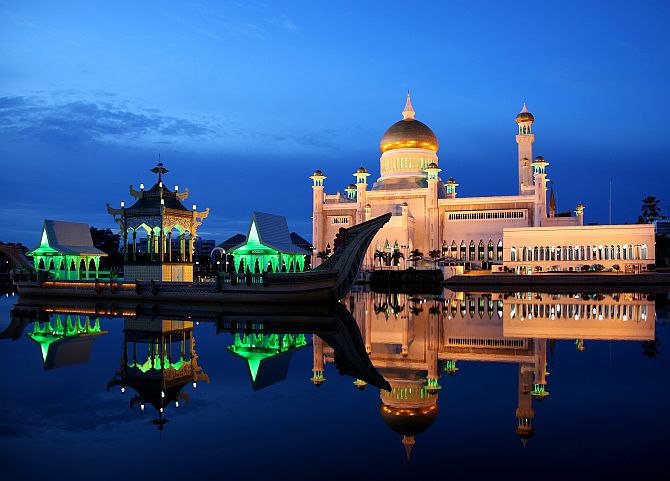
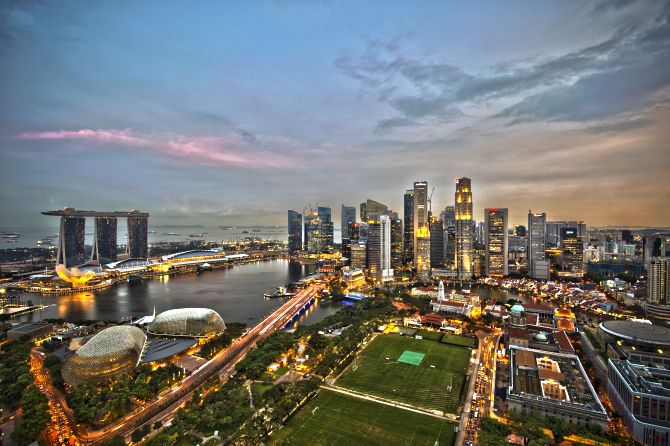
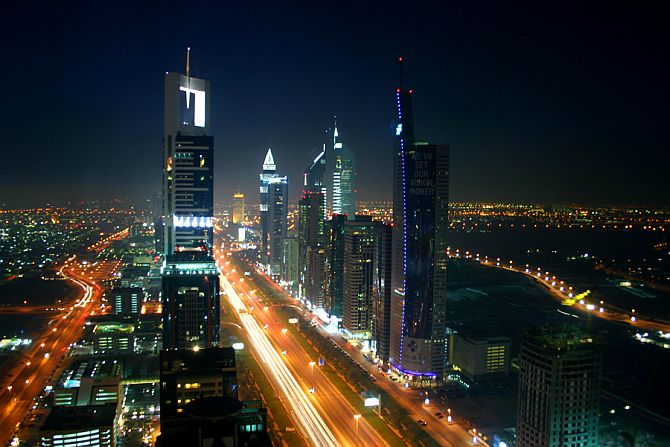
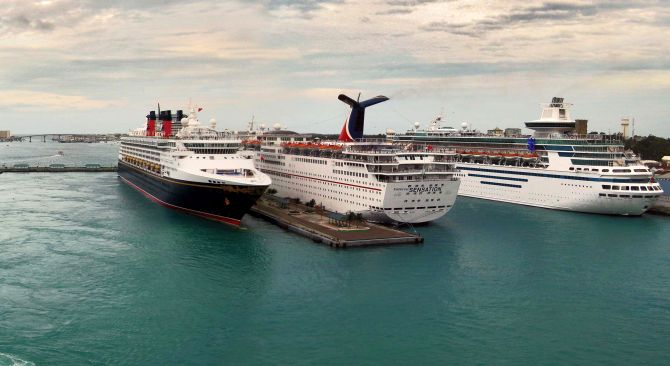


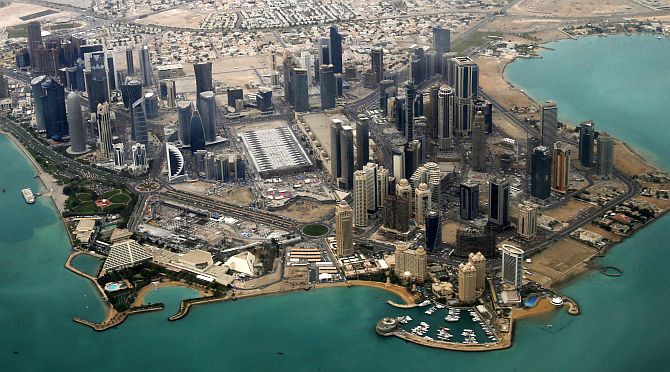
article